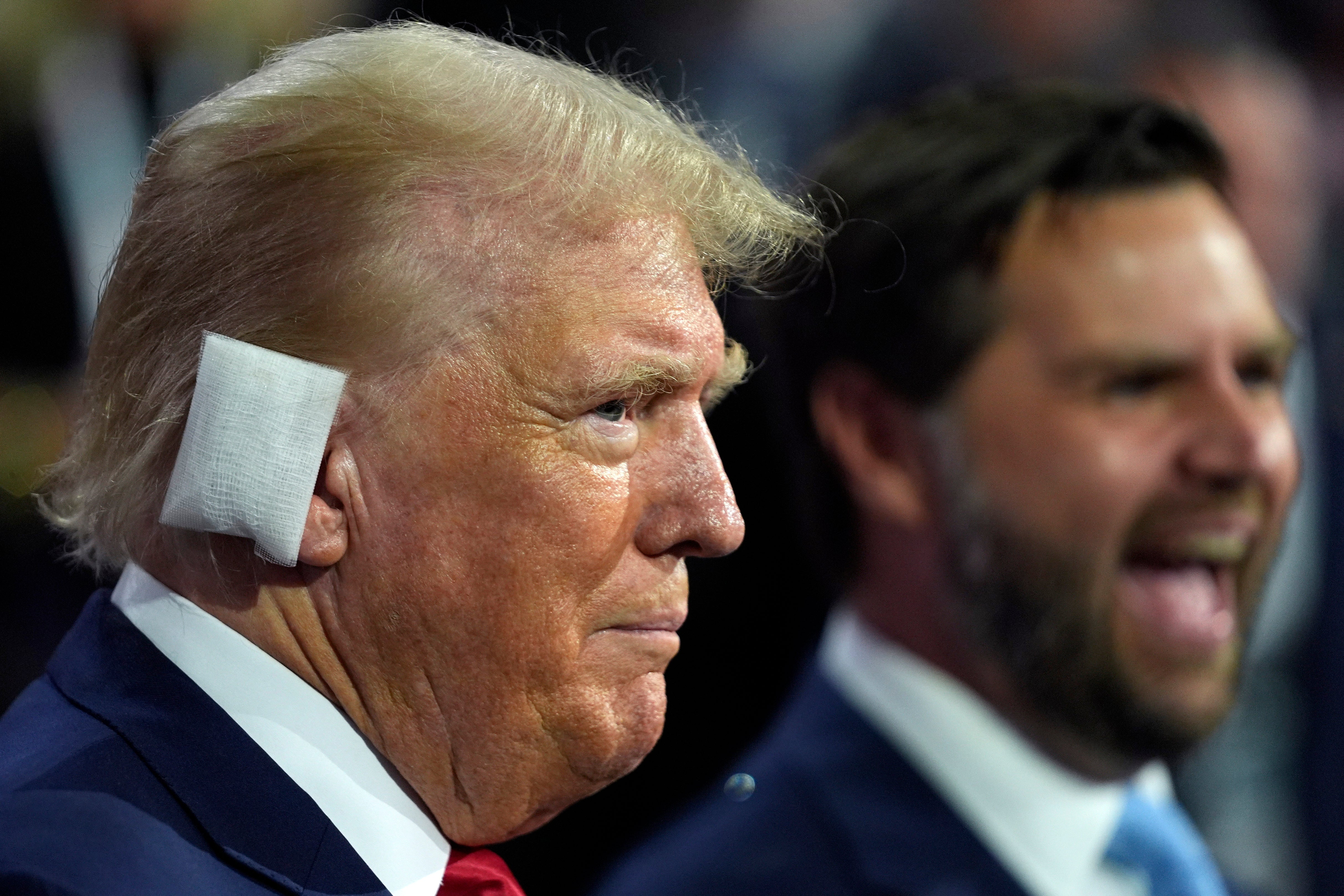What will a Donald Trump and JD Vance presidency mean for the UK-US special relationship?
As the potential vice-president of the US brands the UK the world’s first ‘Islamist nuclear power’, Sean O’Grady wonders what the future holds for diplomacy between the two countries


The remarks by JD Vance, Republican Party nominee for vice-president, have (at least for the British) put the future of the “special relationship” under renewed focus. Vance quipped at the National Conservatism Conference in Washington that, since Labour took over, the UK may be regarded as the world’s first Islamist nuclear power.
As the possibility of a second Trump presidency hoves into view, the Starmer government is making what preparations it can for what may come next.
What happens if Trump wins in November?
A number of large and small challenges immediately present themselves. The first is for the relevant key players to get on the best personal terms possible with the incoming administration. Hopeful signs here include the reportedly good working relationships established by the current British ambassador in Washington, Dame Karen Pierce.
She was to be replaced by Sir Tim Barrow, who managed much of the Brexit process. Now it seems she may stay on, or be succeeded by a New Labour grandee – speculation surrounds David Miliband and Peter Mandelson. Although both men would love it, it’s unlikely that Trump’s publicly preferred candidate, Nigel Farage would be appointed. The foreign secretary, David Lammy, has been developing a rapport with Vance, and Starmer was notable in being the first foreign leader to call Trump after the assassination attempt.
What are the less hopeful signals?
What both sides have said and done in the past. Lammy has compared Trump to Hitler (albeit so has Vance), and Labour’s generally internationalist, “woke” values don’t endear themselves to the modern Republican Party. It’s fair to say that the next Trump administration will be the most isolationist and protectionist of any since before the Second World War. On a UK-US free trade agreement, on Nato, on Russia and Ukraine, on Gaza, on climate change and on relations with Iran, among other issues, the two nations have very significant differences of view. Only on China does there seem much convergence of policy, and even there the US is rather more aggressive than the UK.
Can the UK do without the US?
No, which is why the “special relationship” is so one-sided and so crucial to British national security. The US provides the UK with its nuclear weapons technology, shares crucial intelligence, runs bases and generally supplies top-grade military equipment and technology. The UK is in no position to substitute all of that, and even a pan-European effort to do so, as advocated by French president Emmanuel Macron, has little chance of coming off for years.
What can the UK do?
Pivot, and history shows that this can be done successfully. Tony Blair was the last Labour prime minister to be confronted with a change of party in the White House, and he did so with some skill. Having spent the best part of a decade building up relations with his ideological soulmate, Bill Clinton – they were both keen on the now neglected “third way” – when the neocon George W Bush won the presidency in 2000, Blair had to adapt.
At one press conference, Bush was asked what he had in common with Blair and all he could come up with was the Colgate toothpaste provided to the visiting British delegation. Initially inclined to put domestic policy ahead of foreign interventions, Bush had his mind changed for him by 9/11 and later the war in Iraq. Blair’s staunch support for both, almost unconditional, was appreciated. Against early expectations, the transatlantic alliance strengthened and Bush valued the counsel of the man he once greeted with “Yo, Blair!”
Could Starmer be Blair to Trump’s W?
It would be far more difficult. Quite apart from differences in the two men’s outlook, the fact is that British and American interests have diverged since the 2000s, and sometimes dramatically so. President George W Bush was the president to send troops to Afghanistan but President Donald J Trump was the president to arrange to get American forces out of there. The age of “liberal interventionism” is over, and the last two-term Republican president is barely acknowledged by his own party these days; while Bush’s distaste for Trump is hardly a secret.
What could change?
Events. At some point in the next presidency, whoever is in power, the reality of Russia’s malign intentions may become clear even to today’s Republican Party and its leadership. In other words, when vital American interests are unequivocally seen to be in danger from Vladimir Putin, then some rapid changes in foreign and defence policy would follow. The most likely would be a closer anti-American alliance that would bind China, Iran, North Korea and Russia in active opposition to the US and its traditional allies, including Israel.
Thus far, Trump has been able to maintain a relatively friendly posture towards Russia with a fairly obsessive and confrontational policy towards China; that could easily end if Putin and Xi Jinping start to move together against the US and its allies, whether in the Indo-Pacific, the Middle East or Europe. At such a point Starmer, even outside the EU, could perform the traditional role of a bridge to Europe.






Join our commenting forum
Join thought-provoking conversations, follow other Independent readers and see their replies
Comments